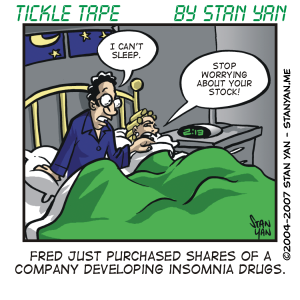Trading can be fast-paced. The astute trader knows how to make quick, intuitive decisions. Seasoned traders have learned to trust their hunches. They have extensive experience with the markets, and as seasoned professionals, they can interpret a wide array of information quickly and efficiently. But it isn’t always a good idea to trust your intuition. If you’re a novice trader, it may be useful to stay closer to the facts. Since novice traders have not yet accumulated a vast repository of experience, it is better to stay fact-oriented and concrete.
 Dr. Tom Gilovich, a psychology professor at Cornell University, argues that intuition helps us understand the world most of the time, but it can be wrong. Humans are eager to find patterns and connections. Our desire to find these connections is so strong that we may see them when they aren’t there. Dr. Gilovich suggests that people have “two minds,” which he calls System 1 and System 2. System 1 is intuitive and rooted in personal experience. It is emotion-driven and helps humans cope with environmental demands. For example, while walking in a dangerous neighborhood, it’s useful to identify a potential attacker and take precautions. System 2, in contrast, is logical and deductive. It works slowly, churning through each option until the most logical one is selected.
Dr. Tom Gilovich, a psychology professor at Cornell University, argues that intuition helps us understand the world most of the time, but it can be wrong. Humans are eager to find patterns and connections. Our desire to find these connections is so strong that we may see them when they aren’t there. Dr. Gilovich suggests that people have “two minds,” which he calls System 1 and System 2. System 1 is intuitive and rooted in personal experience. It is emotion-driven and helps humans cope with environmental demands. For example, while walking in a dangerous neighborhood, it’s useful to identify a potential attacker and take precautions. System 2, in contrast, is logical and deductive. It works slowly, churning through each option until the most logical one is selected.
System 1, the intuitive mind, is easily misled. Dramatic information can grab one’s attention and throw off decisions. For example, when you suddenly and unexpectedly see a sell-off, you might panic and start to sell. There are times when reacting out of fear is to your advantage, but at other times, it is to your disadvantage when you act impulsively and your trading plan, which suggests that you wait for a larger move to happen, is actually right. The intuitive mind can also see connections that aren’t there. Studies show that people try to find information to support a correlation between two events, even when there is strong evidence that negates the association. Quick, intuitive decisions are efficient when the signals on which they are based are consistent with conventional wisdom. But when the situation is an anomaly, the decisions are often biased.
Your mood may also bias your intuition. Dr. Nalini Ambady, a psychology professor at Tufts University, conducted a study showing that people make more accurate intuitive decisions when in a pleasant mood than when feeling discouraged. When we’re feeling down, we may not have confidence in our intuitions and hunches and may use this information improperly.
Psychological studies suggest that there are times when our intuition fails us, but should we avoid using our intuition? Not necessarily. If you are a novice trader, you may want to be wary of your hunches. Novice traders may not have enough experience to trust their intuition. A seasoned trader, however, has a wealth of experience. Seasoned traders can scan many sources of information simultaneously and automatically. When people first learn to trade, they must deliberately look at information closely and carefully put it all together.
But over time, people develop an intuitive feel for putting signs and signals together to make fast, intuitive judgments. It’s much like driving a car. The student driver must carefully attend to various aspects of driving, but over the years, seasoned drivers can scan many inputs at once and make quick driving decisions. It’s the same with trading. By making as many trades as possible and in a variety of market conditions, you’ll collect a wealth of experience and hone your intuitive skills. Over time, you’ll be able to make quick, accurate assessments of the market and act decisively.
In the end, traders must use their intuition to understand the markets. But there’s a big difference between impulsively trusting unfounded hunches because you have not yet developed a feel for the markets, and having well-honed trading skills that allow you to process multiple inputs quickly and logically to arrive at a sound decision. Seasoned professionals are less prone to bias. Until you hone your skills, it’s useful to take the time to look at your trading options more carefully.

